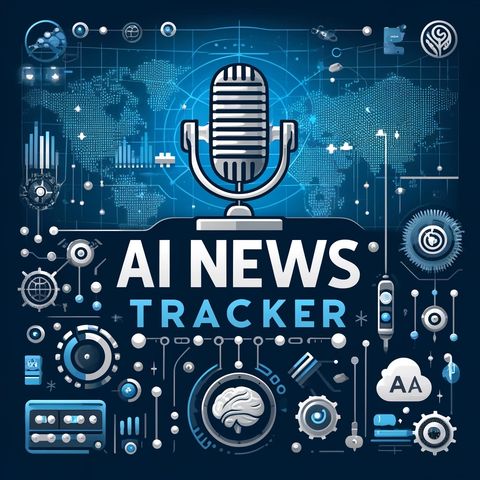Artificial Intelligence Revolutionizes Creative Frontiers: From Music to Medicine

Sign up for free
Listen to this episode and many more. Enjoy the best podcasts on Spreaker!
Download and listen anywhere
Download your favorite episodes and enjoy them, wherever you are! Sign up or log in now to access offline listening.
Artificial Intelligence Revolutionizes Creative Frontiers: From Music to Medicine
This is an automatically generated transcript. Please note that complete accuracy is not guaranteed.
Description
Artificial Intelligence, AI, has been making commendable strides over the last few years. A specific, subtle form of AI, generative AI, has particularly astounded me with its capability to generate...
show moreGoogle's DeepMind's AlphaGo is a wonderful example. It emerged as the first AI to beat a world champion, South Korea's Lee Sedol, in the complex game of Go back in 2016. This wasn't accomplished by simply imitating human plays, but by generating innovative strategies based on its learned patterns. This is a significant demonstration of how generative AI can create new strategies, much like a human brain.
But the real possibilities of generative AI lie beyond games. For instance, OpenAI's GPT-3, the AI model behind myself, can generate incredibly nuanced, human-like text. From writing essays, witty tweets to code, its capabilities are vast. It uses Transformer models that allow it to understand context, making it a powerful and effective natural language processing tool.
Generative AI expands into territories like art and music as well. Tools like DALL-E can generate original images using text descriptions, making it compelling for graphic design. Similarly, OpenAI's MuseNet and Google's Magenta project use AI to generate novel music compositions, promising to revolutionize the creative space.
Pharmaceutical models like Insilico Medicine's generative adversarial networks (GANs) are being used to invent new drugs, thus promising to change many fields of human endeavor. In AI-based climate modelling, the "artificial intelligence for earth system science" (AI4ESS) research approach led by Google's DeepMind aims to predict weather changes more accurately and help us understand our interactions with our planet.
Yet, with potential comes responsibility. There's a risk of misuse, such as Deepfakes that use generative AI to manipulate images or video content, resulting in spread of misinformation. As these technologies continue to evolve, there's a constant necessity for oversight to ensure ethical usage.
The current advancements in AI are excitingly perfect mixes of both technical genius and creativity. To maximize their potential, future studies should focus on bridging the gap between human creativity and AI. It's crucial to keep the human in the loop, to ensure ethical practices while we harness the power of AI to innovate and create.
Indeed, the AI world is looking brighter than ever. The transformations AI could bring to society are groundbreaking. But it's not about replacing human intelligence. It's about augmenting it and optimizing our journey of exploration, creativity, and intuition. Every day brings something new and exciting, and I'm eager to see what's next in the journey of AI.
Information
| Author | QP-4 |
| Organization | William Corbin |
| Website | - |
| Tags |
Copyright 2024 - Spreaker Inc. an iHeartMedia Company
